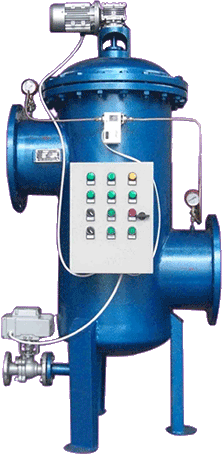In the ever-evolving landscape of industrial processes, efficiency and reliability are paramount. One of the critical components that play a significant role in ensuring smooth operations is filtration. Traditional filtration methods, while effective, often require regular maintenance and manual cleaning, leading to downtime and increased operational costs. This is where self-cleaning filters come into play, revolutionizing the way industries handle filtration.
A self-cleaning filter is an advanced filtration system designed to automatically remove accumulated debris and contaminants from the filter element, ensuring continuous operation without the need for manual intervention. These filters are equipped with mechanisms that periodically clean the filter media, either through backwashing, scraping, or other cleaning methods, thereby maintaining optimal performance and extending the lifespan of the filter.

Backwashing Filters: These filters reverse the flow of fluid to dislodge and remove trapped particles from the filter media. The backwash cycle is typically triggered by a pressure differential or a timer, ensuring that the filter is cleaned before it becomes clogged.
Scraper Filters: These filters use mechanical scrapers to remove debris from the surface of the filter element. The scrapers are usually driven by a motor and can operate continuously or intermittently, depending on the application.
Rotary Drum Filters: Commonly used in water treatment and wastewater applications, rotary drum filters consist of a rotating drum with a filter media on the surface. As the drum rotates, a backwash spray cleans the filter media, allowing for continuous operation.
Suction Scanning Filters: These filters use a suction scanner to clean the filter element. The scanner moves across the surface of the filter media, removing debris through a suction mechanism. This type of filter is particularly effective for fine filtration applications.
Self-cleaning filters are used across a wide range of industries due to their versatility and efficiency. Some common applications include:
Water Treatment: Ensuring clean and safe water is crucial for both municipal and industrial applications. Self-cleaning filters help remove suspended solids, algae, and other contaminants from water, improving the quality and safety of the final product.
Oil and Gas: In the oil and gas industry, filtration is essential for protecting equipment and ensuring the purity of the product. Self-cleaning filters are used to remove particulates from crude oil, natural gas, and other fluids, reducing the risk of equipment damage and improving process efficiency.
Food and Beverage: Maintaining hygiene and product quality is paramount in the food and beverage industry. Self-cleaning filters help remove contaminants from liquids, such as juices, sauces, and dairy products, ensuring that the final product meets stringent quality standards.
Chemical Processing: In chemical processing, filtration is critical for removing impurities and ensuring the consistency of the final product. Self-cleaning filters are used to filter solvents, acids, and other chemicals, improving process efficiency and reducing downtime.
Pulp and Paper: The pulp and paper industry relies on filtration to remove fibers, debris, and other contaminants from process water. Self-cleaning filters help maintain the quality of the final product and reduce the environmental impact of the manufacturing process.
The adoption of self-cleaning filters offers numerous advantages over traditional filtration methods:
Continuous Operation: Self-cleaning filters are designed to operate continuously without the need for manual intervention. This reduces downtime and ensures that processes run smoothly and efficiently.
Reduced Maintenance: The automatic cleaning mechanism of self-cleaning filters minimizes the need for regular maintenance and manual cleaning, reducing labor costs and improving overall operational efficiency.
Extended Filter Life: By preventing the buildup of debris and contaminants, self-cleaning filters extend the lifespan of the filter element, reducing the frequency of replacement and lowering operational costs.
Improved Filtration Efficiency: Self-cleaning filters maintain optimal filtration performance by regularly cleaning the filter media. This ensures consistent removal of contaminants and improves the quality of the final product.
Environmental Benefits: The use of self-cleaning filters reduces the amount of waste generated by traditional filtration methods. This not only lowers disposal costs but also minimizes the environmental impact of industrial processes.

While self-cleaning filters offer numerous benefits, there are also some challenges and considerations to keep in mind:
Initial Cost: The upfront cost of self-cleaning filters can be higher than traditional filters. However, the long-term savings in maintenance and operational costs often justify the initial investment.
Complexity: Self-cleaning filters are more complex than traditional filters, requiring careful installation and regular monitoring to ensure optimal performance.
Specific Applications: Not all filtration applications












